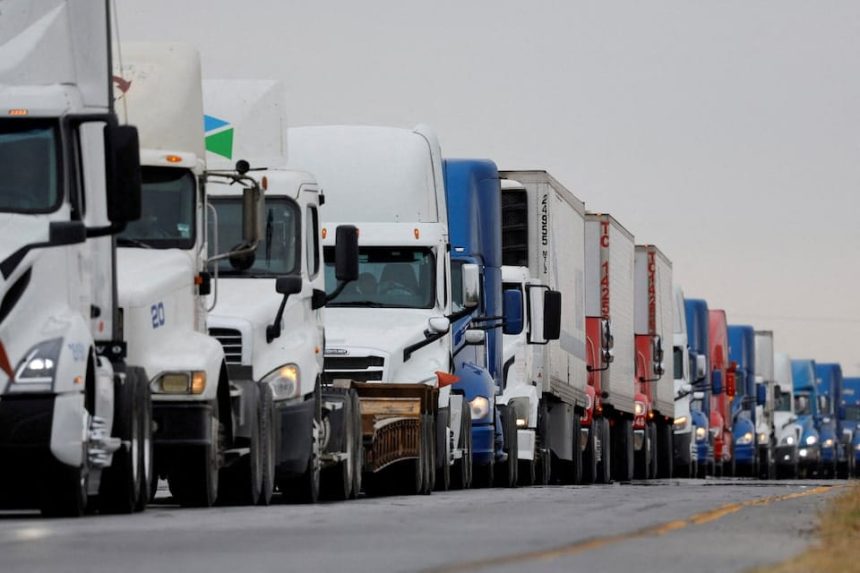U.S. President Donald Trump’s new 25% tariffs on imports from Mexico and Canada took effect on Tuesday, along with a doubling of duties on Chinese goods to 20%, sparking trade wars that could slam economic growth and lift prices for Americans still smarting from years of high inflation.
The tariff actions, which could upend nearly $2.2 trillion in annual U.S. trade with its top three trading partners, went live at 12:01 a.m. (0501 GMT).
Trump declared that all three countries had failed to do enough to stem the flow of the deadly fentanyl opioid and its precursor chemicals into the U.S.
Trump’s new tariffs helped push Wall Street’s main stock indexes lower for the second day in a row in early trade, with the tech-heavy Nasdaq Composite index dropping more than 10% from its all-time high on Dec. 16. Automakers, homebuilders, retailers and other tariff-sensitive stocks all took hits.
The losses followed steep drops in Asian and European shares, which helped push the safe-haven 10-year U.S. Treasury yield to its lowest level since October.
The Canadian dollar and Mexican peso weakened against the greenback.
China responded immediately, announcing additional tariffs of 10%-15% on certain U.S. imports from March 10 and a series of new export restrictions for designated U.S. entities. Later it said it had raised complaints about the new measures with the World Trade Organization.
Canada and Mexico, which have enjoyed a virtually tariff-free trading relationship with the U.S. for three decades, were poised to immediately retaliate.
Canadian Prime Minister Justin Trudeau said Ottawa was launching 25% tariffs on C$30 billion ($20.7 billion) worth of U.S. imports, including orange juice, peanut butter, wine, spirits, beer, coffee, appliances, apparel, footwear, motorcycles, cosmetics, and pulp and paper.
Trudeau said Canada would slap tariffs on another C$125 billion of U.S. imports if Trump’s tariffs were still in place in 21 days.
Consultation over these produce were still taking place, but they are expected to include vehicles, steel, aircraft, fruits and vegetables, beef and pork.
MUST READ : Sports : Trump Signs Executive Order Banning Transgender Athletes From Women’s Sports
“Tariffs will disrupt an incredibly successful trading relationship,” Trudeau said, adding that they would violate the U.S.-Mexico-Canada free trade agreement signed by Trump during his first term.
Ontario Premier Doug Ford told newsmen he was ready to cut off shipments of nickel and transmission of electricity from his province to the U.S.
Mexican President Claudia Sheinbaum said on Tuesday there was “no reason, rationale or justification” for Trump’s actions after Mexico took “decisive actions” against organized crime and fentanyl trafficking.
She vowed retaliation and said she would announce Mexico’s response at an event on Sunday in Mexico City’s iconic Zocalo square.
The European Union’s Executive Commission said it “deeply regrets” the decision, which risked disrupting global trade.
Trump has vowed to impose “reciprocal tariffs” on EU goods on April 2.
The tariffs were already sparking some U.S. price increases, running counter to Trump’s election vow to bring down living costs for Americans.
( Editor : Oloyede Oworu )








